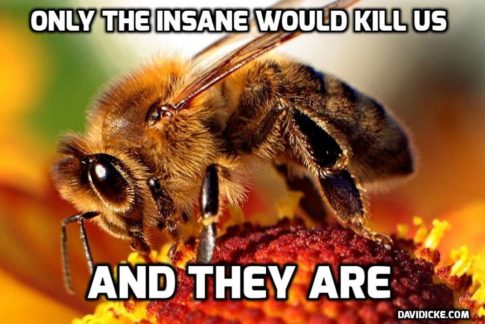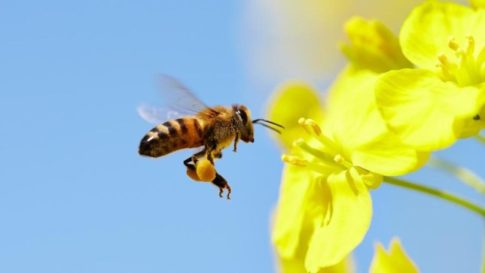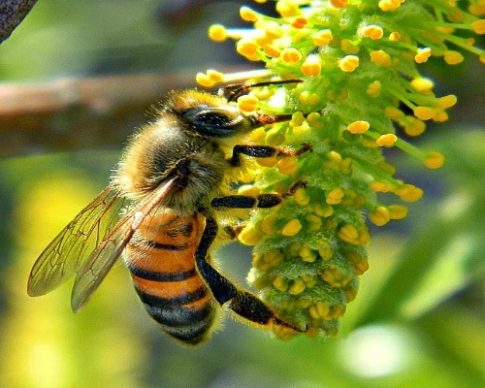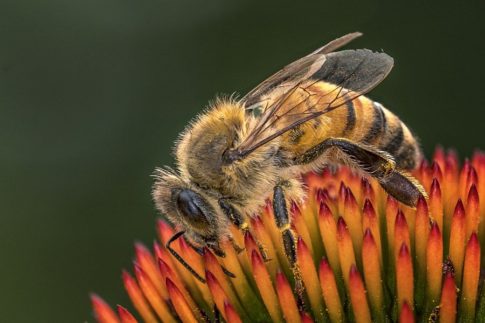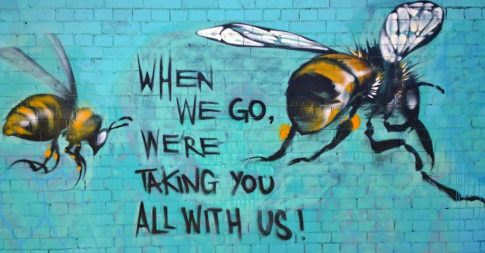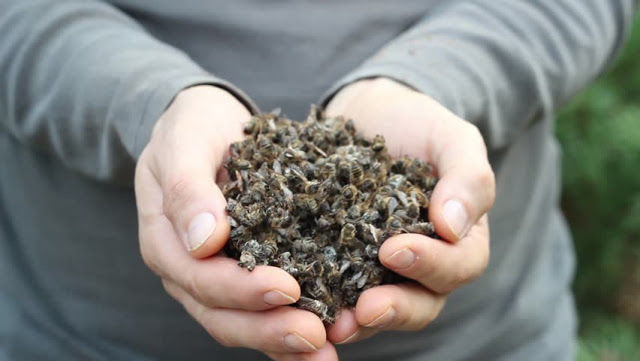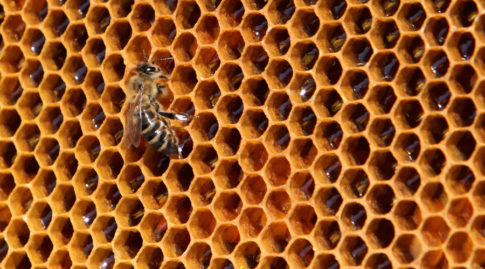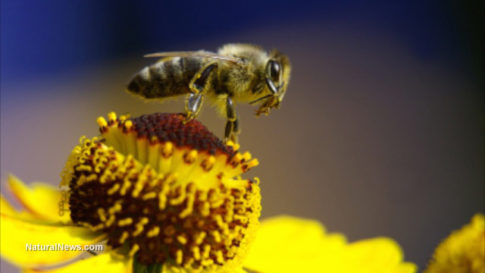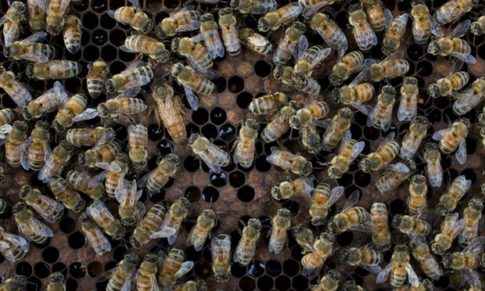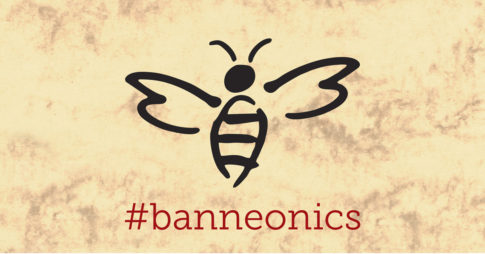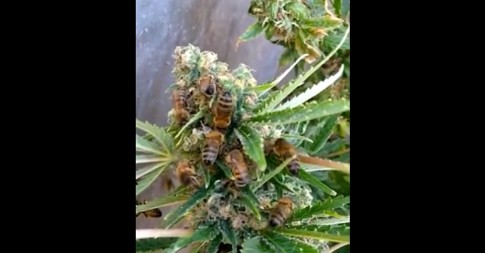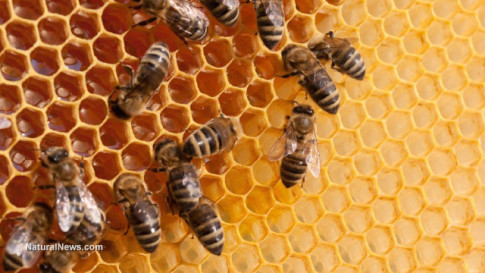
– Death and Extinction of the Bees:
This article was originally published in March 2014
Scientists have recently reported that mass extinctions of marine animals may soon be occurring at alarmingly rapid rates than previously projected due to pollution, rising water temperatures and loss of habitat. Many land species also face a similar fate for the same reasons. But perhaps the biggest foreboding danger of all facing humans is the loss of the global honeybee population. The consequence of a dying bee population impacts man at the highest levels on our food chain, posing an enormously grave threat to human survival. Since no other single animal species plays a more significant role in producing the fruits and vegetables that we humans commonly take for granted yet require near daily to stay alive, the greatest modern scientist Albert Einstein once prophetically remarked, “Mankind will not survive the honeybees’ disappearance for more than five years.”
Since 2006 beekeepers have been noticing their honeybee populations have been dying off at increasingly rapid rates. Subsequently researchers have been scrambling to come up with an accurate explanation and an effective strategy to save the bees and in turn save us homo sapiens from extinction. Recent harsh winters that stay freezing cold well into spring have been instrumental in decimating the honeybee population in Iowa by up to 70% as well as the other historically high yielding honey states – the Dakotas, Montana, Minnesota. The northern Plains and Midwestern states that have regionally always produced the nation’s most honey have been severely hurt by the long harsh winters in the last couple years. Florida as the third largest honey producer and especially California always among the top producers have been hit especially hard by decreasing bee colony populations. In 2006 when the problem of bee loss first was noticed, California was right up at the top with North Dakota producing nearly twice as much honey as the next state South Dakota but its bee numbers have incurred such heavy losses that in 2011, though still second, California’s honey production fell by nearly half in just six years. The recent severe drought in California has become an additional factor driving both its honey yield and bee numbers down as less rain means less flowers available to pollinate.
Read moreDeath and Extinction of the Bees

